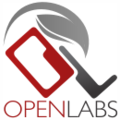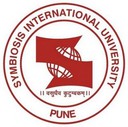Quick Multitouch Apps using kivy and Python
| Authors | Karan Pratap Singh, Nitin Chadha |
| Talk Type | talk |
| Level | Beginner |
| Topic | Other Python libraries and extensions |
| Tags | python, kivy, multitouch, multi, touch, apps, applications, android, meego |
Multitouch screen enabled devices are now everywhere and all around us. Kivy is an open source Python software library for rapid development of applications equipped with novel user interfaces, such as multi-touch apps.
Using Kivy and Python we can quickly create multitouch apps which can run on Windows, MacOS and Linux based platforms.
In this talk I will show you how to setup kivy and make useful multitouch input based apps rapidly!
Kivy is an open source software library for rapid development of applications that make use of innovative user interfaces, such as multi-touch apps. Kivy is also a part of National User Interface Group which is a global research community focused on the open discovery of natural user interface.
Find out more on kivy here and nuigroup here.
This talk focuses at using kivy and Python to make rapidly multitouch apps which can then be deployed on a number of multitouch based platforms like Meego, Android etc.
In this talk I show how we can support Human Computer Interaction research ideas by using kivy and python and why kivy is the best library for doing this.
The best thing about kivy is that it is very easy to learn and people can get started with it in no time.
During the talk we will make a complete multitouch app and will run it on: 1) A tablet/phone supporting multiouch running either Android or Meego. 2) A custom multitouch setup made by the authors.
We will be also covering briefly how to make a DIY multitouch screen easily at home/college :D.
Hi, Pycon organisers, I just want to mention that the co-author of this talk, Nitin, had talked with you regarding his problem. The thing is that he has to give his GRE exam on 19th September and he has also talked with you in this regard via email. So we kindly request you to schedule our talk on the 2nd day of Pycon. If that is not possible, then only I will be giving this talk, without Nitin. from-Karan Pratap Singh
Karan Pratap Singh is a 4th year Computer Science, Bachelor of Engineering student at UIET, Panjab University, Chandigarh, India. Karan Pratap Singh is an Open Source Enthusiast, a geek, a video-games/movies lover and also hacks/loves linux! Karan Pratap Singh is a KDE-Indian and the founding member of Panjab University's Linux User Group better known as PULUG. He has created a Low Cost Interactive Touch screen prototype and currently hacks on KDE. He is currently doing a Google Summer of Code project for KDE called KDE Plasma Educational Desktop.
Karan Pratap Singh knows/has used C/C++/Python/PHP/Javascript/Java for various projects. Karan Pratap Singh is mainly interested in Computer Graphics and Human Computer Interaction Research. He has been using python since 1 year for mini projects in pygame and sms based apps using Google App Engine.
He has also organised a GNOME 3.0 Launch Party and is a Firefox College Representative for Panjab University.
He blogs at www.kpsfoo.in
Nitin Chadha is a final year student of computer science at UIET, Panjab Univ, Chd. He has been interested in co-curricular activites and has been using python for past 3 years. He is deeply interested in FOSS events and is co-founder of Panjab Univ Linux Users Group ( PULUG ). He has done severl interesting projects including building automated Heart, Low Cost Interactive screen, Perceptual Browsers, and biometric identification systems and has worked with institutions like Centre of Advanced Computing and UIADI project of Govt of India. He is FOSS contributer and has delivered several seminars and workshops on varius technologies. BlogUrl : http://www.upcomingnewton.blogspot.com/
| file | size | uploaded | comment |
|---|---|---|---|
| pycon_talk_final.pdf | 189.9 KB | september 6, 2011 | Slides for Quick Multitouch Apps using Kivy and Python |
You can upload or delete a file if you are author of this talk.











